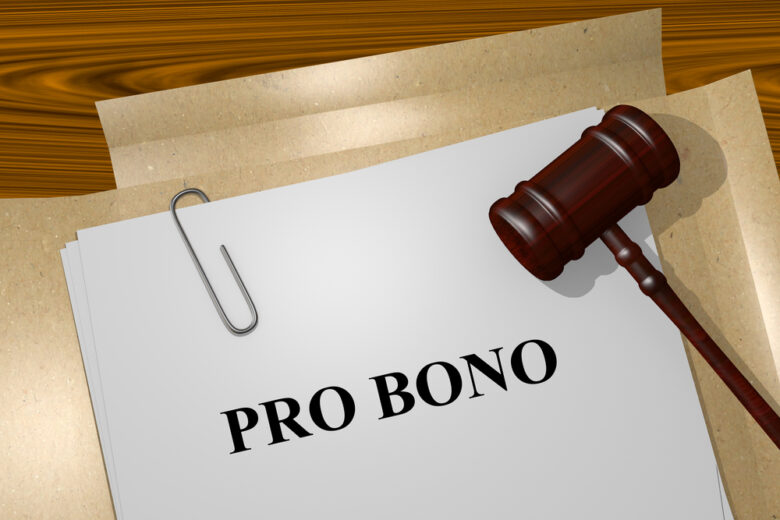When a situation might require getting a legal practitioner, making a decision can be overwhelming, especially if it is your first time.
In truth, not all issues require hiring a lawyer. However, for those that require one, not hiring or hiring the wrong lawyer for your case can be catastrophic.

Source: pinterest.com
Contents
When should I hire a lawyer?
Anyone thinking about this question likely needs a lawyer. The law is complicated whether you are involved in a criminal or civil case. Hiring a lawyer can save you from jail, expensive fines or help you get the compensation you deserve. Meanwhile, you do not necessarily need to be in trouble for you to need a lawyer. It can save you from a future problem.
Examples of situations when you might need a lawyer include:
- When injured by someone, such as in a car accident
- When making a will or planning an estate
- When you are being arrested for a crime
- Family matters like divorce, adoption, or paternity dispute
- Business contracts
- When a civil lawsuit is filed against you
Besides having a general knowledge of the law, lawyers specialize in specific fields. The court rule does not mandate you must hire specific kinds of lawyers for certain types of cases. Nevertheless, hiring a lawyer that specializes in an area related to your case gives you a fair fighting chance against the other side.
Types of lawyer
It is impossible to state the actual number of the types of lawyers that exist today. Most law specialties are a result of demand, and even in specialties, there are still sub-specialties. For instance, startup lawyers are business lawyers with a particular focus on startup businesses.

Source: florinroebig.com
Business lawyer
Business lawyers, also called corporate lawyers, ensures a client’s business is conducted in a manner that does not violate any law. They can also defend a business against intellectual property suits and hostile takeover allegations.
Tax lawyers
Tax lawyers understand tax law in the area where they practice. They help clients comply with these laws and recommend ways to reduce payable tax legally.
Personal injury lawyer
People who sustained an injury at work, through medical practices, accidents, dog bites, or assaults will need personal injury lawyers to help them get justice and fair compensation from the person that caused the injury.
Sometimes, the damage caused by someone else’s carelessness might be irreparable, such as in an accident that results in the victim’s death or amputation of a part of the body.
However, the compensation received might help reduce the financial burden of medical expenses.
A personal injury lawyer will gather evidence, document the injuries and calculate expenses to determine how much the victim can claim.

Source: canva.com
Bankruptcy lawyer
There are two types of bankruptcy lawyers — those specializing in consumer bankruptcy and those handling commercial bankruptcy cases.
These lawyers can guide you or your business through the process of bankruptcy. Based on your situation, they will offer the best option for you between filing for Chapter 7 bankruptcy or Chapter 13 bankruptcy.
Estate planning lawyer
People considering leaving properties or investments for their heirs will need estate planning lawyers to handle their wills, trusts, or property rights.
They will ensure your wishes are respected upon passing away.
Other types of lawyers are:
- Defense lawyer
- Constitutional lawyer
- Family lawyer (for divorce paternity and child adoption/surrogacy)
- Labor lawyer
- Immigration lawyer
- Intellectual property lawyer
- Medical malpractice lawyer
- Government lawyer
- Entertainment lawyer
- Contract lawyer
- Military lawyer
- Real estate attorney lawyer
- Mergers and acquisitions lawyer
- Toxic tort lawyer
- Video game lawyer
- Startup lawyer
- Civil rights lawyer
- Finance and securities lawyer
- Public interest lawyer
- Civil litigation lawyer
- Digital media and Internet lawyer
- Environmental lawyer
- Social Security disability lawyer

Source: smithammonslaw.com
How to get a lawyer for free
The service of a law professional is not free except in pro bono cases. Unfortunately, some people need legal representation but cannot afford it, especially when charged with a criminal offense or involved in a child dependency case.
The court allows individuals to represent themselves without an attorney, but most of the time, the outcome is not always favorable for such persons.
Upon a suspect’s arrest, you may have heard the Miranda warning: You have the right to remain silent. Anything you say can and will be used against you in a court of law. You have the right to an attorney. If you cannot afford an attorney, one will be provided to you.
In criminal cases, the state provides a Public Defender for defendants who cannot afford to hire a lawyer.
Contingency fee vs. Pro Bono
For certain cases especially those that require the filing of claims for the award of a specific amount of money, lawyers charge a contingency fee.
When lawyers charge a contingency fee, it means they are entitled to a percentage of the monetary compensation from the case if it is won. This means you do not have to make any upfront payment, and sometimes, it is a good deal as you have nothing to lose — either win or loss, both parties are affected.
Some of the cases lawyers charge contingency fees include:
- Personal injury
- Professional malpractice disputes
- Wrongful death
- Workers’ compensation
- Disability
- Bankruptcy
Pro bono, on the other hand, is a service provided by lawyers without expecting any form of payment. It is usually offered by lawyers, law students, and paralegals to people who cannot afford a lawyer.
The American Bar Association recommends that lawyers render at least 50 hours of pro bono publico legal services annually.

Source: abajournal.com
Things to consider and mistakes to avoid when hiring a lawyer
Specialty
To improve your chances of winning a case, hire a lawyer who specializes in a field related to the lawsuit. Avoid hiring a family lawyer to handle your personal injury case.
Experience
Hiring a specialized lawyer is not enough. Ensure the lawyer you are choosing has considerable years of practice. Also, check their winning streak to evaluate if they are suitable for your case.
Payment arrangements and fees
Discuss details of payment with your lawyer before signing a retainer. Also, do not pick the first lawyer you contact. Reach out to at least two law firms to compare their competence and fees.
Case complexity
There are small and big law firms. The complexity of your case will determine which is better for you. For instance, a big law firm will have the necessary resources if you file a class action against a conglomerate company.

Source: epsteinlawyers.com
Style of representation
Lawyers have different styles they use when defending a case in court. Some are calm and diplomatic, while some lawyers are aggressive and may be difficult to deal with.
When choosing one, there is no such thing as one size fits all. The nature of the lawsuit should determine the best lawyer for your case. If you are charged with a criminal offense, an aggressive lawyer might be able to save you. But a calm and diplomatic lawyer may be a better choice if you are fighting for your child’s custody.
